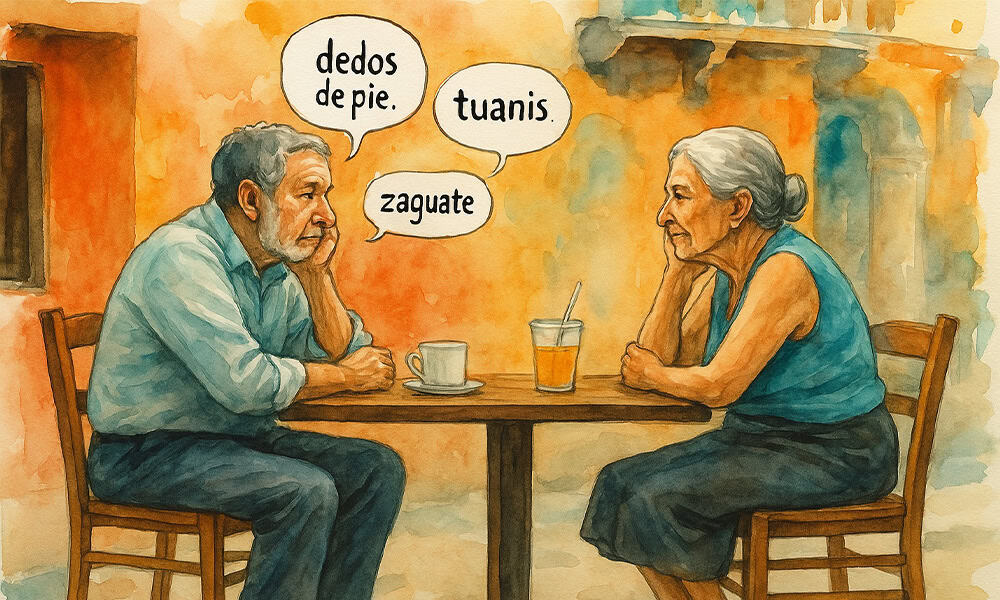Learning a new language later in life requires patience, perseverance, and the understanding that, no matter how fluent you become, you’ll probably never reach the level you have with your native tongue. I learned Spanish in my 30s and have worked several jobs that required as much—or more—Spanish than English. I speak Spanish with my wife, live in a barrio where I’m likely the only native English speaker, and feel confident in my abilities. And yet…
Take the word faruscas. My wife once used it to describe a mechanic who did shoddy work on my car. Despite my fairly expansive Spanish vocabulary, I had never heard, read, or spoken the word. According to El Diccionario de la Lengua Española, it’s Costa Rican slang meaning anything from a gossip to a hypocrite to a fake. It’s not a word I use, but I like the way it rolls off the tongue.
I also enjoy my favorite putdown word: pendejo. Technically defined as “pubic hair,” it’s more commonly used to describe a stubborn or unlikeable person—or as I see it, a synonym for “a-hole.”
Every region has its unique slang, and Costa Rica is no exception. Beyond well-known phrases like Pura Vida, tuanis, and solo bueno, here are some others:
- Dar pelota – To seek attention (not to give someone a ball)
- Mechudo – A person with long, messy hair
- Apretar – To squeeze, or in Tico slang, to French kiss
- Bomba – A gas station (not just a pump)
- Presa – Commonly used to mean a traffic jam, though it literally means dam
- Gallo pinto – A staple breakfast dish, not a painted rooster
- Zaguate – A mutt or street dog
- Preservativo – A condom, not a food preservative
- Tío político – An uncle-in-law, not a political uncle
Also, beware of direct translations: Dedos are fingers, but dedos de pie are toes. No me molesta means “don’t bother me,” not “it doesn’t bother me.” A malabarista is a juggler—not a bad barista.
Then there’s the common confusion between the letters “V” and “B.” While they’re pronounced the same in Spanish—with a hard B sound—I’ve seen signs like “No votar basura” (“Don’t vote for garbage!”), which should say “No botar basura” (“Don’t litter”). I’ve seen bicicleta spelled vicicleta, and vaso as baso. But in the end, the reader usually understands the meaning.
Every language has a living lexicon beyond what you learn in class. I try to keep up with slang and lesser-known terms—not just for personal enrichment, but so I don’t come across as a faruscas.






